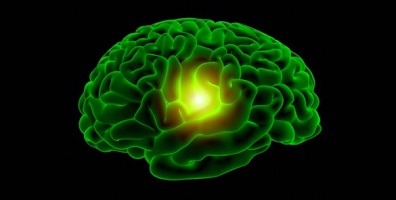Fighting Brain Cancer: Understanding the Challenges and Strategies
Delve into the challenges of Fighting Brain Cancer and discover effective strategies. Shop at Drug Shop Web for reliable cough, cancer, and pain medications. Brain cancer is one of the most daunting medical challenges faced by patients and healthcare professionals alike. Understanding the nature of this disease is crucial for developing effective strategies to combat it. Brain cancer typically arises from abnormal cell growth in the brain or spinal cord, leading to tumors that can disrupt normal brain function. These tumors can be classified as primary or secondary, depending on their origin. Primary brain tumors originate within the brain, while secondary (or metastatic) tumors spread from other parts of the body.

The causes of brain cancer can be multifaceted, involving genetic mutations, environmental factors, and lifestyle influences. Despite advancements in medical science, pinpointing the exact cause of each case of brain cancer remains a challenge. However, researchers have identified several risk factors that may contribute to the development of brain tumors, including exposure to high levels of radiation, a family history of brain cancer, and certain genetic disorders such as neurofibromatosis and Li-Fraumeni syndrome.
Dealing with brain cancer requires a comprehensive approach that includes early detection, accurate diagnosis, and effective treatment. Symptoms of brain cancer can vary widely depending on the tumor’s location, size, and rate of growth. Common symptoms include persistent headaches, seizures, blurred vision, balance problems, and cognitive or personality changes. If brain cancer is suspected, it is essential to seek prompt medical attention and undergo diagnostic tests such as MRI or CT scans to confirm the presence of a tumor.
Effective Cancer Drugs: A Glimpse into Brain Cancer Medications at Drug Shop Web
Advancements in pharmacology have led to the development of numerous effective cancer drugs, many of which are available at reputable outlets such as Drug Shop Web. These medications are designed to target cancer cells selectively, minimizing damage to healthy tissues and enhancing patient outcomes. The following is an overview of some of the most promising and effective medications for treating brain cancer:

1. Temozolomide (Temodar): Temozolomide is an oral chemotherapy drug that has become a cornerstone in the treatment of glioblastoma, one of the most aggressive types of brain cancer. It works by interfering with the DNA replication process, preventing cancer cells from multiplying. Temozolomide is often administered in combination with radiation therapy to enhance its effectiveness.
2. Bevacizumab (Avastin): Bevacizumab is a monoclonal antibody that inhibits angiogenesis, the formation of new blood vessels that tumors need to grow. By blocking the blood supply to the tumor, bevacizumab can help reduce tumor size and slow disease progression. It is commonly used for patients with recurrent glioblastoma who have not responded to standard treatments.
3. Carmustine (BCNU): Carmustine is a chemotherapy agent that can cross the blood-brain barrier, making it particularly effective for brain tumors. It works by damaging the DNA and RNA of cancer cells, ultimately leading to cell death. Carmustine can be administered intravenously or as an implantable wafer placed directly into the surgical cavity after tumor removal.
4. Lomustine (Gleostine): Similar to carmustine, lomustine is an alkylating agent that disrupts cancer cell DNA. It is taken orally and is often used in combination with other chemotherapy drugs to enhance its efficacy. Lomustine is particularly effective for treating malignant gliomas.
Brain Cancer Treatment Options: Exploring Comprehensive Approaches
Treating brain cancer requires a multifaceted approach that combines various treatments to achieve the best possible outcomes. The choice of treatment depends on several factors, including the type, location, and stage of the tumor, as well as the patient’s overall health and preferences. The following are some of the most commonly employed brain cancer treatment options:
1. Surgery: Surgery is often the first line of treatment for brain tumors, especially when the tumor is accessible and can be removed without causing significant damage to surrounding brain tissue. The primary goal of surgery is to remove as much of the tumor as possible while preserving neurological function. In some cases, surgery may be followed by other treatments such as radiation therapy or chemotherapy to target any remaining cancer cells.
2. Radiation Therapy: Radiation therapy uses high-energy beams to target and destroy cancer cells. It is commonly used after surgery to eliminate any residual tumor cells and reduce the risk of recurrence. There are several types of radiation therapy, including external beam radiation and stereotactic radiosurgery (e.g., Gamma Knife or CyberKnife), which delivers precise doses of radiation to the tumor with minimal impact on surrounding healthy tissue.
3. Chemotherapy: Chemotherapy involves the use of drugs to kill or inhibit the growth of cancer cells. Chemotherapy can be administered orally, intravenously, or directly into the cerebrospinal fluid. It is often used in combination with other treatments to enhance its effectiveness. As mentioned earlier, drugs like temozolomide, carmustine, and lomustine play a crucial role in brain cancer chemotherapy.
4. Targeted Therapy: Targeted therapy involves the use of drugs or other substances that specifically target cancer cells with minimal impact on normal cells. Unlike traditional chemotherapy, targeted therapy focuses on specific molecular targets associated with cancer cell growth and survival. Bevacizumab, mentioned previously, is an example of a targeted therapy used in brain cancer treatment.

5. Clinical Trials: Clinical trials are research studies that evaluate new treatments or treatment combinations for brain cancer. Participation in clinical trials provides patients with access to cutting-edge therapies that may not yet be widely available. Clinical trials also contribute to the advancement of medical knowledge and the development of new and more effective treatments for brain cancer. Buy COVID-19 vaccination cards Online.
The fight against brain cancer is challenging, but with the advent of effective medications and comprehensive treatment approaches, there is hope for improved outcomes and enhanced quality of life for patients. Drug Shop Web offers a reliable source of cancer medications, ensuring that patients have access to the latest and most effective treatments available.
